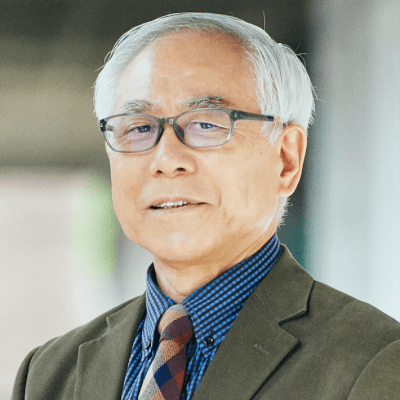Yoshitsugu Hayashi is Emeritus Professor of Nagoya University and Professor of Chubu University, Japan. He was the sixth President of the World Conference on Transport Research Society (WCTRS) which has more than 1,000 members from over 70 countries.
He has been a Visiting Professor at the Institute for Transport Studies, Leeds University, UK and the Institute of Spatial Planning, University of Dortmund, Germany and at Tongji University, China.
Yoshitsugu Hayashi is an international research leader in the study of transport – land use interactions, and their impacts on climate change and disaster and the socio-economic impacts of the COVID-19 pandemic. His research focuses on urbanisation and motorisation and the countermeasure policies needed to overcome their negative impacts. His rail-oriented urban reform plan in 1996 was a trigger to help overcome Bangkok’s hyper-congestion in the mid 1990’s. This resulted in the reversing of the budget of road vs. rail from 1:99 in 90’ s to 82:14 in the Transport 2020 Plan.
Currently, Yoshitsugu Hayashi’s research is focused on infrastructure impact assessment methods based on individuals’ quality of life by attributes (age, gender, income, etc.) and considering accessibility to hospitals & shops, amenity, safety & security and environment. This has been applied to planning to make growing and shrinking/aging cities resilient and sustainable.
He has been a game changer for transport sustainability by highlighting simulations results. Policy appraisals include: the Bangkok urban railway development extending 250 km network within only 25 years, the Japanese Maglev high speed rail (300km long under construction) and the Indian high-speed rail (500 km long under construction), etc. Without these projects,the resultant road and air-use would have resulted in enormous CO2 and pollutant emissions.
The results of such activities have been published in more than 50 books including Intercity Transport and Climate Change, (Springer, 2014), Disaster Resilient Cities, (Elsevier, 2016), Balancing Nature and Civilization, (Springer, 2019), Transportation Amid Pandemics – Lessons Learned from COVID-19, (Elsevier, 2022)” and Quality of Life Assessment in Urban Development and Transport Policymaking, (Asian Development Bank Institute Press, 2023).



